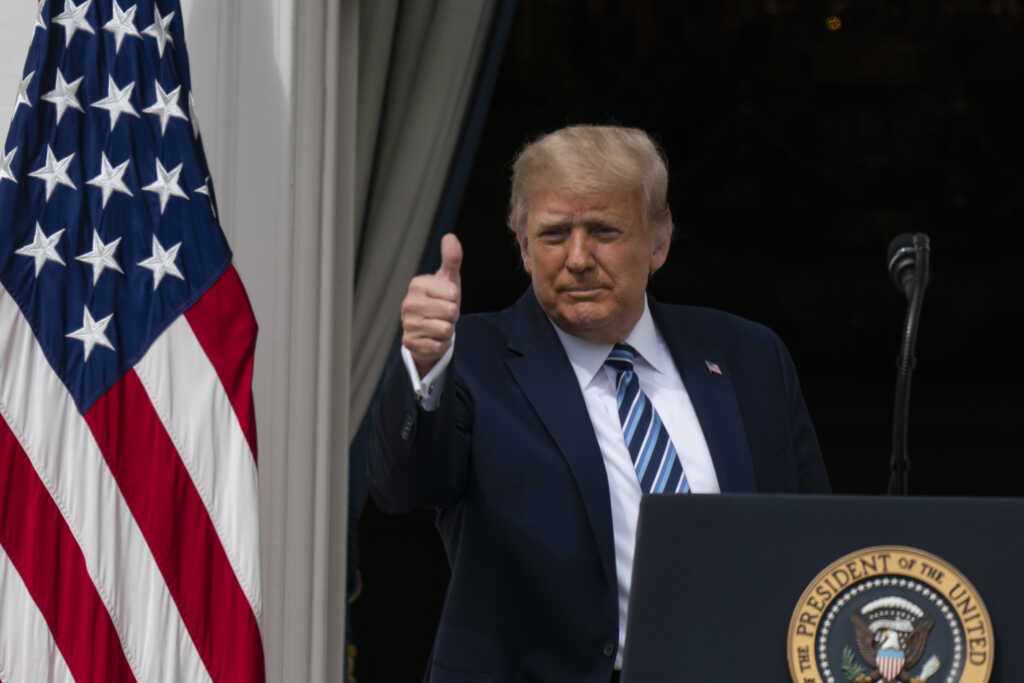Drug companies Pfizer and Moderna have already announced they are moving forward with emergency use authorization applications to fast track their COVID-19 vaccines, a third company has announced they too have a vaccine nearing the finish line.
AstraZeneca is testing two dosing regimens. While one looks to have a 62 percent efficacy rate, trials show the other has a promising 90 percent.
“To get 90 percent, what you have to do is give a half dose for the first immunization and the full dose for the second immunization,” said Professor Adrian Hill with the University of Oxford.
“We’ve never had more reason for hope, thanks to the science,” said US Surgeon General Dr. Jerome Adams.
Pfizer filed its FDA application for authorization for emergency-use authorization of the vaccine on Friday and Moderna is expected to be right behind them.
Operation Warp Speed believes the first vaccinations could come by Dec. 12.
“With the level of efficacy we have, 95 percent – 70 percent of the population being immunized – would allow for try-herd immunity to take place with herd immunity by May,” said Dr. Moncef Slaoui, chief science adviser for Operation Warp Speed.
Pfizer, Moderna
The pharmaceutical giant Pfizer announced Wednesday it will seek regulatory approval for its COVID-19 vaccine “within days.”
Working in partnership with the German group BioNTech, Pfizer has completed its Phase 3 trial and has deemed the vaccination 95% effective at preventing COVID-19 infections, NBC News reported, up from 90% last week.
Former Food and Drug Administration Commissioner Dr. Scott Gottlieb, who serves as an independent member on Pfizer’s board of directors, described the development as a “game change,” adding the successes in vaccine development “could effectively end the U.S. epidemic next year.”
To date, there have been no serious side effects for the 41,135 adults who received two doses of the Pfizer vaccine. The most common reaction among trial participants were that 3.7% experienced fatigue and 2% had headaches.
Only eight of those who received the Pfizer vaccination fell ill to COVID-19. By comparison, 162 of those who received the placebo became sick.
“The study results mark an important step in this historic eight-month journey to bring forward a vaccine capable of helping to end this devastating pandemic,” Pfizer Chairman and CEO Dr. Albert Bourla said in a statement. “With hundreds of thousands of people around the globe infected every day, we urgently need to get a safe and effective vaccine to the world.”
The companies — Pfizer and BioNTech — announced their joint plan to seek emergency use authorization from the FDA “within days.” The groups are also sharing their findings with regulators in Europe.
Pfizer’s data shows the vaccination 95% effective against future infections beginning 28 days after the first two doses. The immunization’s effectiveness was found to be consistent across all age and race demographics. Furthermore, its side effects wore off “shortly after vaccination,” and among older adults, they tended to be “fewer and milder.”
News of Pfizer’s rapidly evolving vaccine comes just a couple days after the biotech company Moderna announced its COVID-19 vaccine is 94.5% effective against infection.
Moderna President Dr. Stephen Hogue described the development as a “really important milestone,” adding he’s reassured by the fact that Pfizer has released similar findings.
“That should give us all hope that actually a vaccine is going to be able to stop this pandemic and hopefully get us back to our lives,” he added.
Both the Moderna and Pfizer vaccines were developed using messenger RNA, tiny pieces of genetic code injected into the body to trick the immune system into producing a response to fend off COVID-19 without actually having to inject actual bits of the virus.
Anything else?
This week, CNN’s Jake Tapper and Dr. Sanjay Gupta praised President Donald Trump’s administration for its work to facilitate the production of a COVID-19 vaccine at breakneck speed.
“It’s important that people working so hard — Monsef Slaoui and the others — get credit for this, and President Trump was the one who OK’d it,” Tapper said.
Gupta agreed, adding, “No doubt. The pace of medical innovation has been forever changed. I mean, three months, Jan. 11 is when they got the sequence of this virus. By March 16, two months later, shots were going into arms as part of these clinical trials. I couldn’t believe it when I saw that pace. It typically takes, you know, years to really get these vaccines approved. It’ll be done within a year. That is worth celebrating, and now we have some early data to be very optimistic about.”
“So all of the scientists, everyone behind this, all the way up to President Trump and Vice President Pence, congratulations on this great accomplishment,” said Tapper.
Trump, for his part, thanked Tapper and Gupta for their comments.


